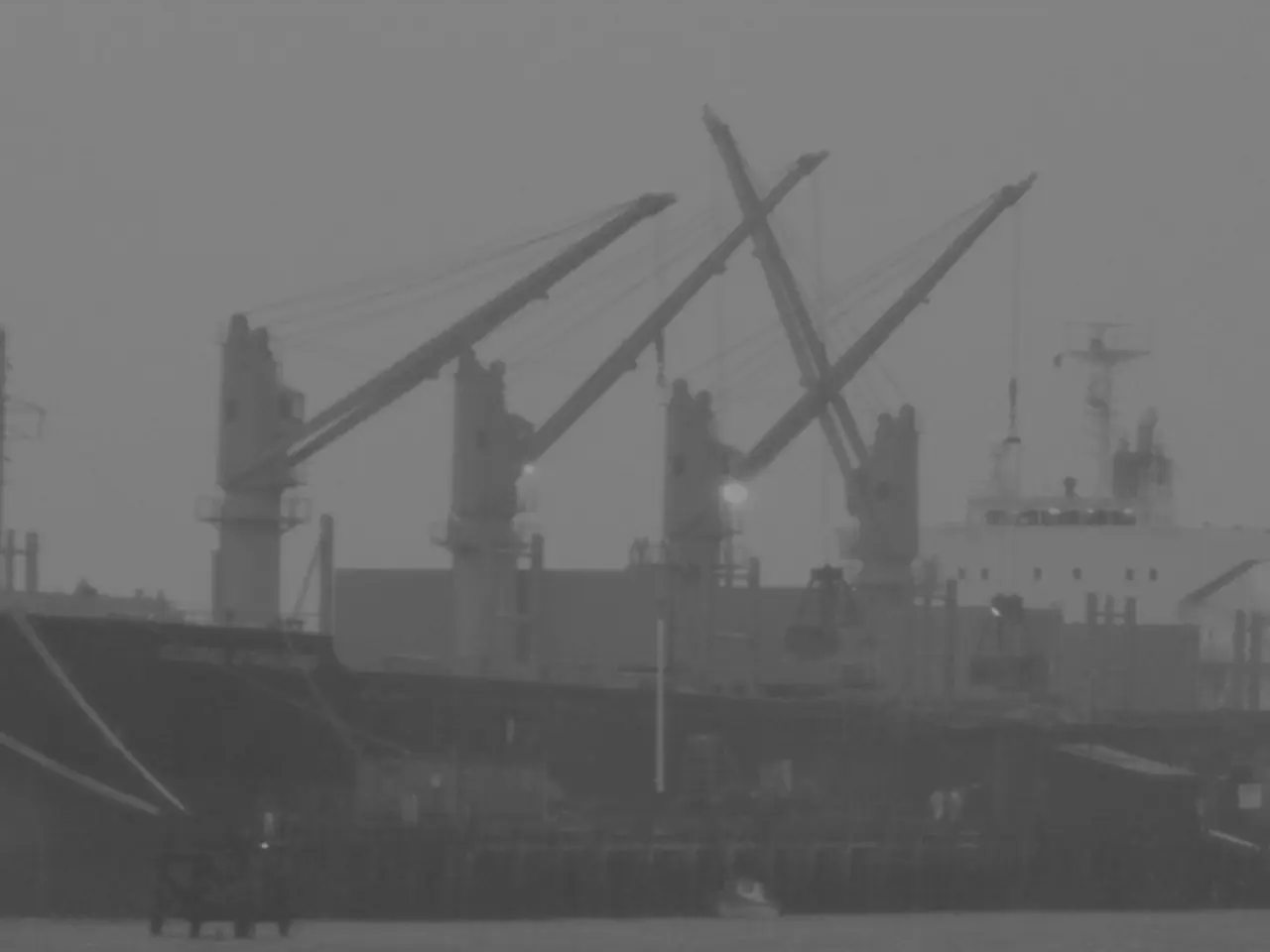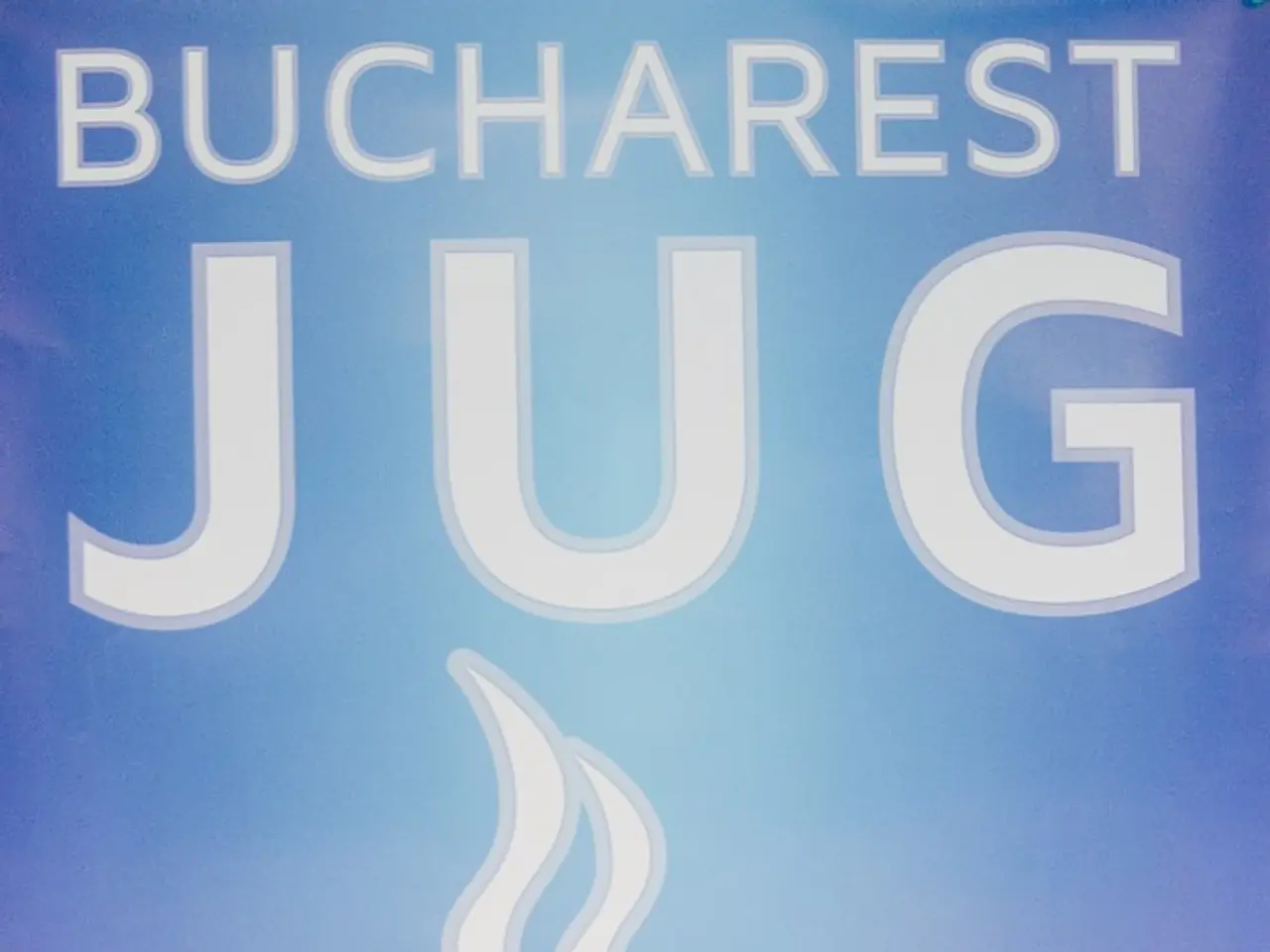Thyssenkrupp undergoing transitions; latest updates available in the podcast.
Thyssenkrupp, a German industrial conglomerate, is currently undergoing significant restructuring and transformation, particularly in its steel division. This transformation is in response to the challenges faced in the European steel market and the company's efforts to improve competitiveness.
Currently, Thyssenkrupp Steel is implementing a series of measures to streamline its operations. This includes the elimination of around 1,600 production jobs and 3,700 positions in other areas by 2029, with an additional 6,000 jobs expected to be lost through outsourcing. The company aims to reduce its workforce from 27,000 to 11,000 positions.
Production capacity is also being reduced, with plans to decrease annual production capacity from 11.5 million metric tons to a target range of 8.7-9 million metric tons. This move is part of the company's strategy to improve operational efficiency and competitiveness.
Recent investments of €800 million have been made in modernizing a strip mill at the main site in Duisburg, as well as integrating new upstream equipment. This shows Thyssenkrupp's commitment to technological advancements and productivity improvements.
Looking ahead, Thyssenkrupp's restructuring agreement, known as "Steel Realignment," aims to ensure long-term competitiveness and successful positioning in the market. The company is working closely with the IG Metall union to finalize operational agreements by the end of September, with a focus on avoiding compulsory redundancies.
A radical plan is being pursued by CEO Miguel López to transform Thyssenkrupp into a financial holding company. However, specific details about this transformation are not yet available.
The marine division, TKMS, is planned to be floated on the stock exchange as a model for other divisions. Meanwhile, the future of Thyssenkrupp's green steel initiatives is a topic of discussion, with concerns about the viability of the project arising. Competitor ArcelorMittal has already stopped its green steel plans in Germany, which is a concerning sign.
The breakup of Thyssenkrupp's long-established conglomerate raises doubts about the viability of the individual parts without the safety net of the parent company. The goal is to make the individual divisions, such as automotive supply and the defense industry, independent.
However, the breakup also raises questions about the impact on employees, the steel industry, and the owners, especially the Krupp Foundation. The planned direct reduction plant at the Duisburg site, intended to produce climate-neutral steel, is in crisis, with CEO López warning in March 2025 that it threatened to become a loss-maker.
Delays, rising construction costs, and a lack of affordable hydrogen are putting the green steel project under pressure. The remaining employees in the steel division are expected to face average wage reductions of eight percent. Thyssenkrupp's steel division plans to cut around 11,000 jobs, affecting sites like Bochum and Duisburg.
Business journalists Oliver Hollenstein and Ulf Meinke are hosting a podcast, "On the Brink - The Thyssenkrupp Story," which covers these issues in three update episodes. The podcast is available on various platforms like Spotify, Apple Podcasts, Amazon Music, Deezer, RTL, and YouTube. Listeners are encouraged to leave comments and ratings for the podcast on the respective platforms.
In conclusion, Thyssenkrupp is focusing on restructuring and modernization to improve competitiveness in a changing European steel market. While specific plans for green steel are not detailed in the current context, the company's broader strategic goals include positioning itself for long-term success, which could involve sustainable production methods. The future of Thyssenkrupp remains uncertain, with many challenges to be addressed, but the company is determined to navigate these difficulties and emerge stronger.
The restructuring agreement, Steel Realignment, at Thyssenkrupp Steel aims to ensure long-term competitiveness and successful positioning in the market, not just within the steel industry, but also in finance and business. This radical plan pursued by CEO Miguel López includes the transformation of Thyssenkrupp into a financial holding company.
In the marine division, TKMS, a possible model for other divisions is planned to be floated on the stock exchange, hinting at a shift in Thyssenkrupp's focus towards business finance and industry reorganization. Listening to the podcast "On the Brink - The Thyssenkrupp Story" can provide insights into these changes and their potential impact on various sectors, including the steel and automotive supply industries.




